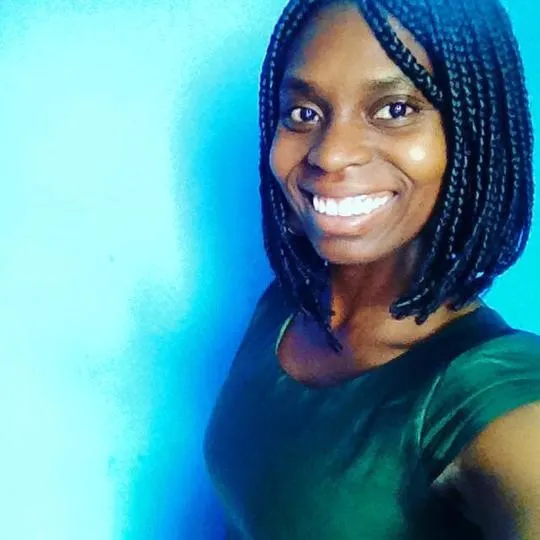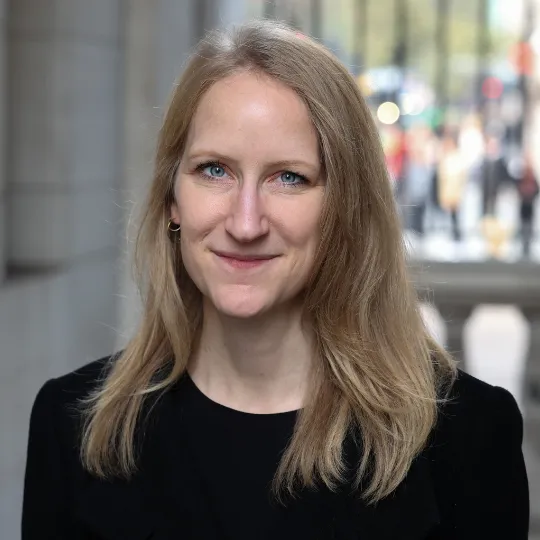Please note: this event has passed
This event will begin with a keynote that will set the stage for the importance of thinking about decolonisation and AI, putting the current moment in its historical context of the relationship between technology, racism, domination, and resistance.
The keynote will be followed by a panel on ‘The Coloniality of AI’ which will start by mapping out and questioning how the utopian and dystopian narratives of AI mirror colonial narratives and moral geographies of ‘development’ and ‘civilisation’ and negates alternative forms of knowledge, while pointing towards ways to disrupt invisibilities and racialised and gendered biases in AI.
You do not need any prior knowledge of AI to enjoy this event.
This event is part of the ‘Digital Decolonisation: Visibilities and Invisibilities in the Age of Algorithms’ series which continues on Thursday 22 May with ‘AI as a Decolonial Tool for Peace and Justice’ and ‘(De)coloniality and Humour in the Age of AI’. . You may also be interested in 'Decolonising AI with Memes: A Practical Way to Critically Engage AI in Teaching and Learning' on Friday 23 May.
Keynote speakers
Professor Husein Inusah is an Associate Professor of Philosophy in the Department of Classics and Philosophy at the University of Cape Coast. He is the recipient of the 2015/16 University of Ghana Vice-Chancellor's Award for the Most Outstanding PhD Dissertation in the Humanities Category and was a Dissertation Completion Fellow at the University of Rochester during the 2013/14 academic year. Prof. Inusah is a fellow of the African Humanities Program of the American Council of Learned Societies (ACLS), USA, an Iso Lomso Fellow at the Stellenbosch Institute for Advanced Study (STIAS), South Africa and a fellow of the Wissenschaftskolleg zu Berlin Institute for Advanced Study, Germany. Currently, he is researching the epistemology of decoloniality, the concept of rationality in traditional African political deliberations, indigenous knowledge systems, epistemic vices and their obstruction of knowledge, African philosophy and the infinitist notion of the regress of justifications.
Mutale Nkonde is a researcher, policy advisor, and media commentator focused on reducing algorithmic bias in AI systems. She is pursuing a PhD in Digital Humanities at the University of Cambridge, studying how far-right narratives spread from white to Black communities globally. Her research is inspired by her work with the US TikTok Content Advisory Council, examining the impact of online discourse on offline behaviour. Nkonde's advocacy began with the Algorithmic Accountability Act, introduced to the US House of Representatives in 2019, calling for impact assessments in AI engineering workflows. She founded AI for the People, a nonprofit advising on responsible AI development, consulting for the Biden-Harris administration, the UN, and UNESCO. In 2025, AI for the People became shareholder activists, influencing major AI developers like Microsoft and Apple to adopt responsible AI practices.
Panellists
Dr Stephanie Diepeveen is a Senior Lecturer in Global Digital Politics at King’s College London, and currently sits as co-chair of the South African G20 T20 Taskforce on Inclusive Digital Transformation. Her research interrogates the politics of digital infrastructure, as well as the imaginaries and spaces that emerge through its development and use. She is particularly interested in ideas and experiences within and from the Global Majority world.
Nadim Nashif is an advocate for digital rights and a social entrepreneur. He serves as the founder and Executive Director of 7amleh – The Arab Center for the Advancement of Social Media, an organization dedicated to promoting digital rights for Palestinians. Additionally, Nadim is an Advisory Board member for the Digital Democracy Initiative (DDI). He is also a member of the Golabe Reference Group of Deutsche Welle Akademie and a policy analyst for Al-Shabaka: The Palestinian Policy Network. Nadim is also the founder and publisher of Sabra Media outlet and a co-founder of Untold Palestine. he has been actively engaged in addressing community development and human rights concerns, both locally and globally.
Rebeccah Wambui is a digital policy consultant and researcher based in Nairobi, Kenya. Her work is at the intersection of technology and human rights, building capacity for meaningful digital engagement, advocating for policy and regulation to reduce technology-facilitated harms and violence based on research. Her background is in Communications and Political Science from the University of Nairobi, and she is also an alumnus of the African School of Internet Governance (Afrisig).
Chair: Dr Gloriana Rodríguez Álvarez is a Lecturer in Leadership, Development, Peace and Security Education at King's College London. She has a PhD in Leadership with reference to Security and Development from King's College London and a PhD in Latin American Studies from the Universidad Nacional de Costa Rica. She has worked for NGOs in Central America and Bolivia on programs related to prison reform, women’s rights, LGBTQ+ rights and the protection of Indigenous peoples within the context of plural legalism.
Organisers
Dr Christoffer Guldberg is a Lecturer in the Faculty of Social Science & Public Policy, King’s College London. He has written extensively on the war on drugs and online activism and violence in Brazil and beyond. His teaching methods have been published as blogs and a peer-reviewed article at King’s Academy, the University of Warwick, and the King’s Decolonial Blog, undotcomfortable, and he has a podcast on decolonising AI at King’s - a Mostly Human Podcast.
Mireille Kouyo is a PhD student, jointly studying with the African Leadership Centre at King’s College London and the University of Pretoria. Her research explores the empirical reality of what local actors are doing at the grassroots level and seek to understand the relationships between actors in the process of building positive peace. She has previously co-organised a workshop on ‘Decolonising the Researcher’.
King's Festival of Artificial Intelligence
This event is part of the King’s Festival of Artificial Intelligence. Running from Tuesday 20 May to Saturday 24 May, the free, five-day festival brings together a diverse line-up of experts to consider critical questions about artificial intelligence in the context of healthcare, education, sustainability, policy, and creativity.
Festival events will take place across several King’s venues, so please check carefully where the event is taking place. Festival event times may be subject to change. Any changes will be communicated to attendees via Eventbrite emails.
Please note, King's events are free, which means we routinely overbook to allow for no-shows and avoid empty seats. Admission is on a first come, first served basis, so please arrive in good time to avoid disappointment. We will not be able to admit those without tickets or latecomers.



